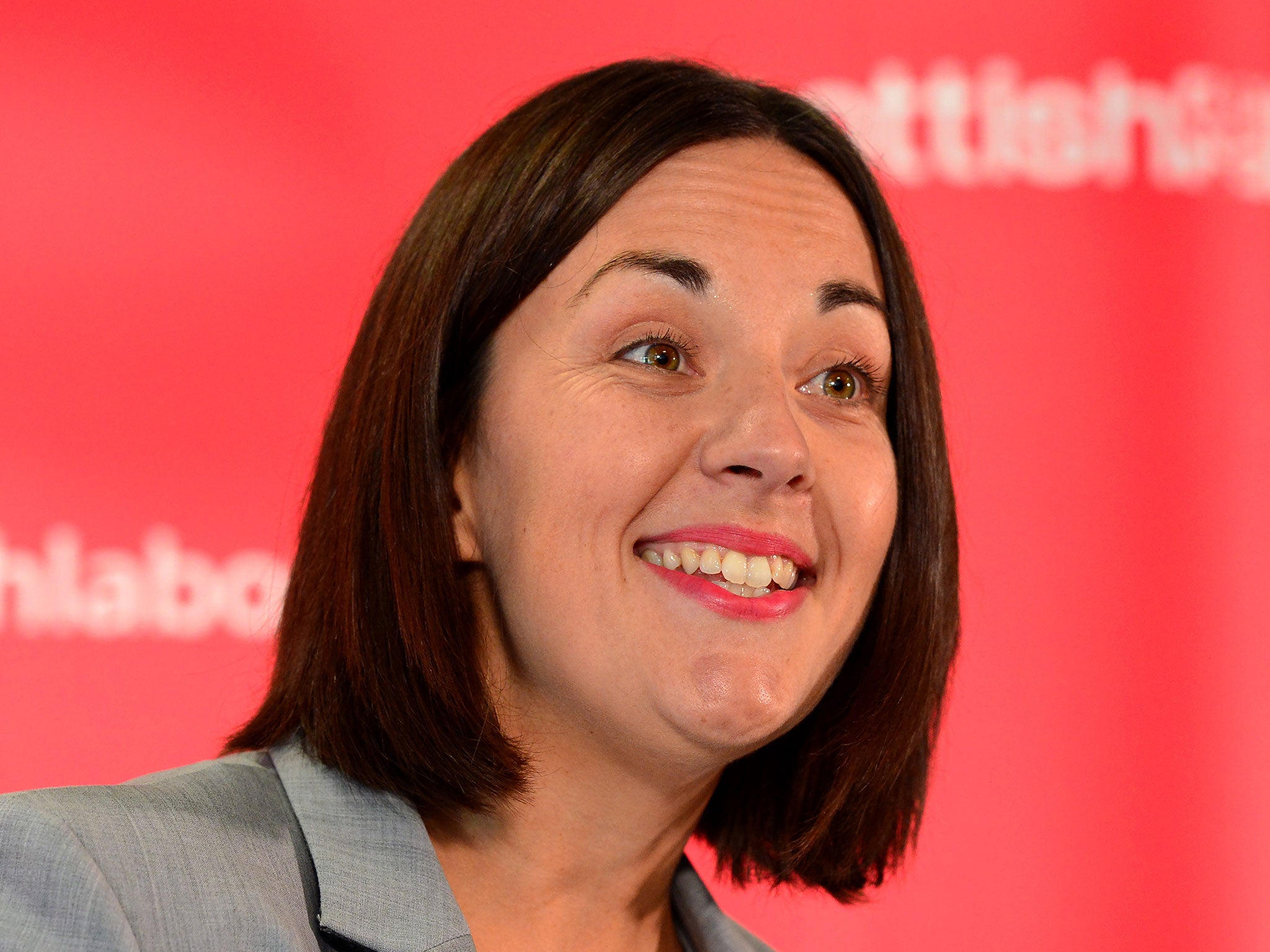Even Kezia Dugdale knows that people in Scotland have stopped listening to Labour altogether
The new leader - whose father supports independence and once reprimanded her for taking a dig at Nicola Sturgeon - faces an uphill struggle

Your support helps us to tell the story
From reproductive rights to climate change to Big Tech, The Independent is on the ground when the story is developing. Whether it's investigating the financials of Elon Musk's pro-Trump PAC or producing our latest documentary, 'The A Word', which shines a light on the American women fighting for reproductive rights, we know how important it is to parse out the facts from the messaging.
At such a critical moment in US history, we need reporters on the ground. Your donation allows us to keep sending journalists to speak to both sides of the story.
The Independent is trusted by Americans across the entire political spectrum. And unlike many other quality news outlets, we choose not to lock Americans out of our reporting and analysis with paywalls. We believe quality journalism should be available to everyone, paid for by those who can afford it.
Your support makes all the difference.Kezia Dugdale is the sixth leader of the Scottish Labour Party since it lost the 2007 Scottish Parliament election to the SNP, and the eighth of the devolved era. Such a quick turnover illustrates more than anything else the challenges she faces over the next few months. Her election – by a decisive 72 per cent of the vote – also highlights just how different Scottish politics is from that in the rest of the UK. Now two of Scotland’s main opposition parties will be led by women (the other being the Scottish Tory leader Ruth Davidson), both of whom are widely acknowledged as effective operators.
But being an effective operator is no longer sufficient in the volatile world of Scottish politics, for the national question – whether or not Scotland should be independent – continues to block out the sun. Even Dugdale’s father Jeff (“Kezia’s dad”, proclaims his Twitter account) supports independence and once reprimanded his daughter on social media for having a pop at Nicola Sturgeon. He used to vote Conservative.
Dugdale at least lacks the baggage that weighed down her predecessor, Jim Murphy, who didn’t even last a year as Scottish Labour’s leader. Aged only 33, she comes from a younger generation of politicians who are relatively non-tribal. She is also quick on her feet (having spent months as deputy leader holding the SNP leader to account at Holyrood) and gets on well with journalists. All that is useful – but not useful enough to guarantee success.
The new Scottish Labour leader will also have to negotiate the rise of Jeremy Corbyn. Dugdale has already rolled back a little on her early fear that the party would end up “carping from the sidelines” if led by the Member for Islington North; given his obvious momentum, she had little choice. Even so, negotiating her way through Labour’s ever-complicated Anglo-Scottish leadership structure will be but one of many challenges facing her. Already Ian Murray, the shadow Scottish Secretary and sole Scottish Labour MP, has suggested that he might not serve in a Corbyn-led Labour Party, presenting the party with an obvious problem should that come to pass.
Dugdale will also have to contend with the SNP cosying up to Corbyn to consolidate its place to the left of the Scottish Labour Party and expose its new leader as “inauthentic”, ie, insufficiently left wing. And when the backlash, both within and outside the Labour movement, inevitably occurs, Nationalists won’t blame Corbyn but argue that the Blairite “virus” is clearly incurable and thus independence remains the only option for left-wing Scots.
It is an uncomfortable reality already acknowledged in her thoughtful victory speech. “It’s not so much that they don’t like what they hear,” she said of a large chunk of the Scottish electorate, “they’ve stopped listening to us altogether.” Conversely, those parties and individuals who do possess “standing” in the eyes of voters are generally immune to regular political scrutiny, thus the SNP can soar to 62 per cent in the polls despite a patchy record in government.
Scottish Labour strategists are comforting themselves with the hope (and it can only be a hope) that at some point the SNP’s uncanny ability to suspend voter disbelief and convince supporters that radical change is just around the corner will come to an end. Indeed, this week Nicola Sturgeon will set out yet another “bold” policy programme, but we’ve been here many times before and they’re usually nowhere near as “bold” as the rhetoric implies.
But then the question of independence has entirely rewritten the rules of the political game, making life for opposition parties such as Labour increasingly intolerable. All Dugdale can hope to do is plug away at a few resonant policy issues while attempting to highlight weak points (and there are many) in the Scottish Government’s record. There still exists a core Labour vote that doesn’t trust the SNP and keeping them onside will be essential.
The party also has to accept that Kezia Dugdale will remain in post for some time, so even if it loses more MSPs to the SNP at next May’s Scottish Parliament elections, replacing her with yet another new leader will be subject to the law of diminishing returns.
Join our commenting forum
Join thought-provoking conversations, follow other Independent readers and see their replies
Comments